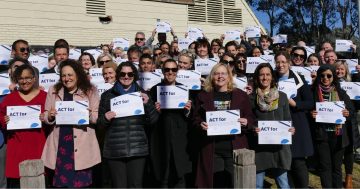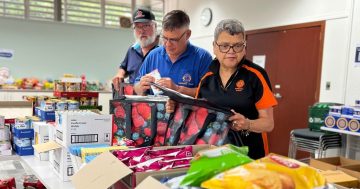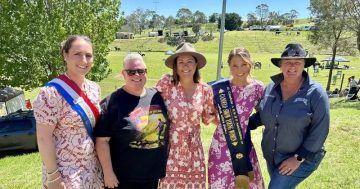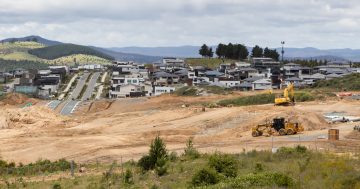
Two groups commonly seen as adversaries will put their heads together to try and minimise development issues in Canberra.
There is no doubt that development in Canberra is a hot button issue. With an increasing population, high house prices and changing household demographics, residential construction is a major driver of our economy. The new developments underway in our suburbs, town centres and transport corridors are changing the face of this city.
While we all want to live in a modern and liveable city, a cursory glance at the comments section of the RiotACT demonstrates that there are significant concerns at a community level about many specific developments. As particular communities confront the impact of individual development proposals, you could be forgiven for believing that developments are a battleground where developers and the community are adversaries fighting for very different outcomes. We also sometimes forget that there are proposals that meet community acceptance and deliver local outcomes without much focus or comment.
When development proposals are contentious, there are often few winners. At the end of the day, many feel that community consultation has been fruitless and they are left with projects that they didn’t really want. Developers can end up feeling just as frustrated when projects are delayed, become more costly and face hostility from neighbours and community members. Sometimes the joint objectives that community and developers are working to achieve – good design and inclusive placemaking – can get lost through an adversarial process.
While these battles are often fought at an individual development level, there are also real systemic challenges. It is clear that it’s a system that relies on rules and regulation to deliver good outcomes rather than promoting innovation. It’s also a system that seems to set up community consultation as a transactional exchange rather than a long-term relationship. Put together, it’s not surprising that trust is low and cynicism is high.
Is there a way that developers can work to demonstrate a ‘social licence’ with local communities? Is there a way they can build their legitimacy as stakeholders who will play by the rules – both in spirit and in law? Is there a way they can guarantee that they will deliver on their promises and commitments to the community? Is there a way they can build trust that they are committed to a long term relationship and will engage in mutual exchange?
These are the questions that an unusual alliance of the ACT Property Council and the ACT Council of Social Service (ACTCOSS) are exploring right now. These two very different organisations are in the early stages working together to create a social sustainability tool that could help guide the way for both developers and community.
They have partnered together for this project in the recognition that sustainability needs to be central in the future development of our city. The Property Council recognises that they have a key role to play in sustainability and social outcomes. They recognize that the built environment can make a big difference in supporting communities that are equitable, diverse, connected and great places to live. ACTCOSS comes from the perspective that there needs to be priorities within our urban renewal program to increase affordability, accessibility, sustainability and inclusiveness for everyone – young and old.
Development should ultimately be about people and how we go about delivering sustainable and liveable homes, streets, suburbs, communities and cities. Development should be about creating buildings, streets and precincts that support safe, healthy, happy and productive living for citizens. This is a new opportunity to build on work that is occurring elsewhere and re-calibrate the drivers of local development and planning. It’s an opportunity to develop a shared language and better understanding between community and developers.
I think organisations with different perspectives coming together to develop shared tools is one way that we can deliver better development and planning outcomes. How do you think we can achieve better development outcomes for the ACT?
Rebecca is a board member of Community Housing Canberra, an affordable housing organisation. She is also an associate member of ACTCOSS.




















